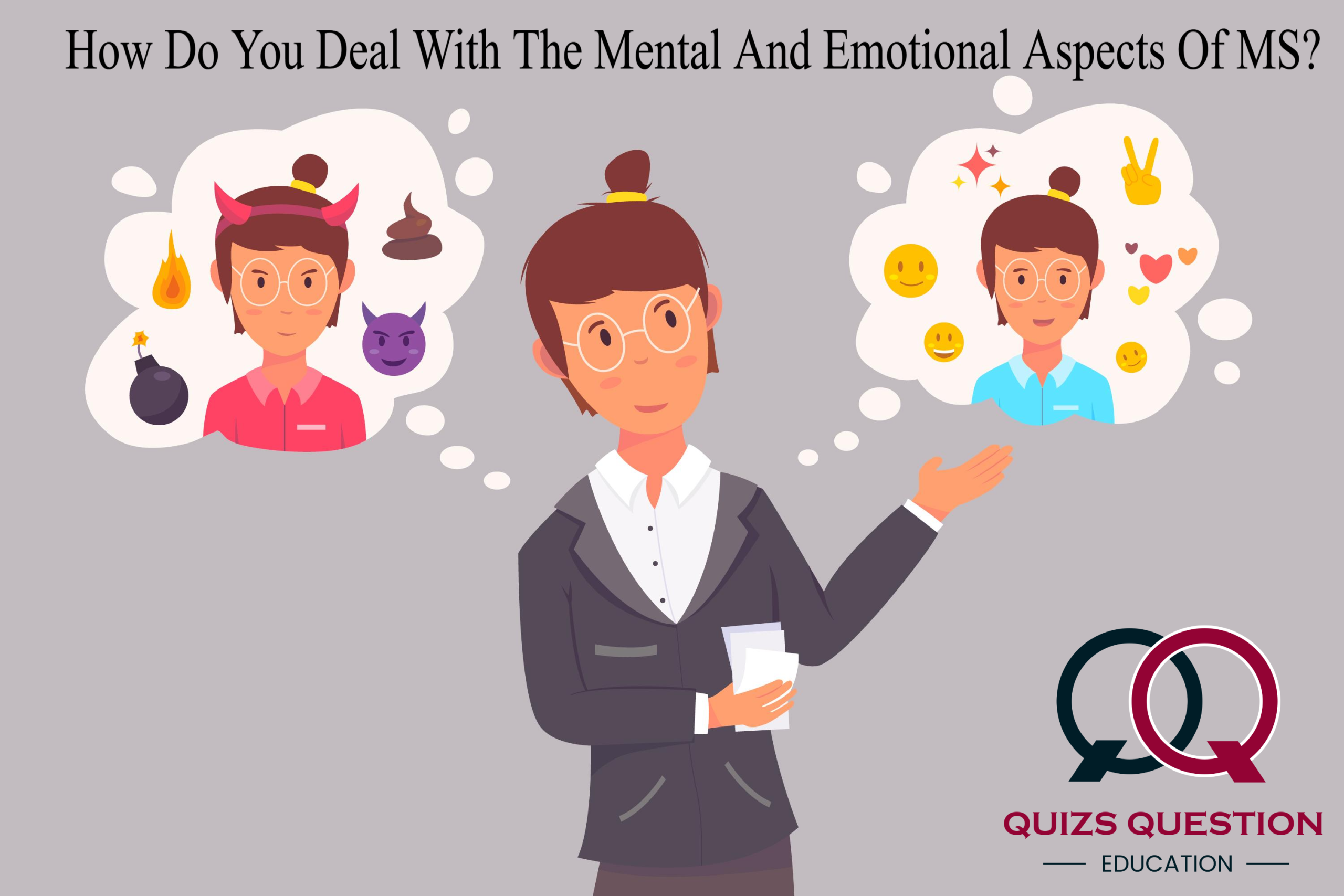Dealing with the mental and emotional aspects of Multiple Sclerosis (MS) can be just as challenging—sometimes more so—than managing the physical symptoms. Everyone’s experience is unique, but here are some ways many people find helpful in coping emotionally and mentally with MS:
1. Acknowledge Your Emotions
It’s okay to feel overwhelmed, sad, angry, or anxious. Letting yourself feel those emotions without guilt is a crucial part of processing the diagnosis and its ongoing effects. You don’t have to “stay strong” all the time.
2. Build a Support Network
- Talk to people who get it: Connecting with others who have MS (through support groups, forums, or social media) can be powerful.
- Lean on loved ones: Let friends and family know what you’re going through emotionally. Sometimes just being heard can ease the burden.
3. Consider Therapy
Speaking to a mental health professional—especially one experienced with chronic illness—can help you work through grief, depression, anxiety, or just day-to-day frustrations.
4. Mindfulness & Stress Management
- Mindfulness, meditation, and breathing exercises can help you stay grounded and reduce stress, which can actually impact MS symptoms.
- Gentle movement like yoga or tai chi can help both physically and mentally.
5. Educate Yourself
Knowledge can bring a sense of control. Understanding your disease, treatment options, and what to expect can reduce anxiety. But don’t overdo it—limit doom-scrolling or obsessively researching symptoms.
6. Celebrate Wins (Even Small Ones)
Whether it’s walking a little further than last week or just getting out of bed on a tough day, acknowledge your strength and progress.
7. Limit Negative Inputs
Try to distance yourself from sources of unnecessary stress—whether it’s toxic relationships, overwhelming news, or social media comparisons.
8. Stay Hopeful
There are constant advancements in MS research and treatment. Many people with MS live fulfilling lives for decades after diagnosis. Hope isn’t denial—it’s fuel for the journey.
Multiple Choice questions (MCQs) focused on dealing with the mental and emotional aspects of Multiple Sclerosis (MS). These questions can be useful for awareness, support groups, or educational purposes:
Q 1. What is a common emotional challenge faced by people with MS?
A. Euphoria
B. Depression
C. Overconfidence
D. Lack of appetite
Show Answer
Answer:-B. DepressionQ 2. Which of the following practices can help manage stress in MS?
A. Ignoring symptoms
B. Isolating yourself
C. Practicing mindfulness or meditation
D. Avoiding physical activity
Show Answer
Answer:-C. Practicing mindfulness or meditationQ 3. Why is counseling or therapy recommended for people with MS?
A. To increase mobility
B. To avoid medication
C. To improve vision
D. To address emotional and psychological challenges
Show Answer
Answer:-D. To address emotional and psychological challengesQ 4. How can a support group benefit someone with MS emotionally?
A. It replaces medical treatment
B. It helps them feel less alone and more understood
C. It cures MS
D. It avoids discussing emotions
Show Answer
Answer:-B. It helps them feel less alone and more understoodQ 5. Which of these is a recommended coping strategy for emotional well-being in MS?
A. Suppressing feelings
B. Journaling thoughts and feelings
C. Avoiding social interaction
D. Increasing caffeine intake
Show Answer
Answer:-B. Journaling thoughts and feelingsQ 6. Fatigue in MS can affect mental health by:
A. Increasing motivation
B. Enhancing memory
C. Contributing to mood changes and anxiety
D. Improving sleep quality
Show Answer
Answer:-C. Contributing to mood changes and anxietyQ 7. What role can medication play in managing the emotional symptoms of MS?
A. It can cure MS
B. It can help regulate mood and reduce anxiety or depression
C. It eliminates physical symptoms only
D. It makes therapy unnecessary
Show Answer
Answer:-B. It can help regulate mood and reduce anxiety or depressionQ 8. Which professional can help with both physical and emotional aspects of MS?
A. Cardiologist
B. Neurologist
C. Physical Therapist
D. Psychiatrist
Show Answer
Answer:-D. PsychiatristQ 9. What is an unhealthy way to cope with the emotional impact of MS?
A. Talking to a friend
B. Practicing yoga
C. Abusing alcohol or drugs
D. Seeking therapy
Show Answer
Answer:-C. Abusing alcohol or drugsQ 10. What is a sign that someone with MS may need emotional or psychological support?
A. Increased energy levels
B. Talking more than usual
C. Gaining weight
D. Persistent sadness or hopelessness


Leave a Reply